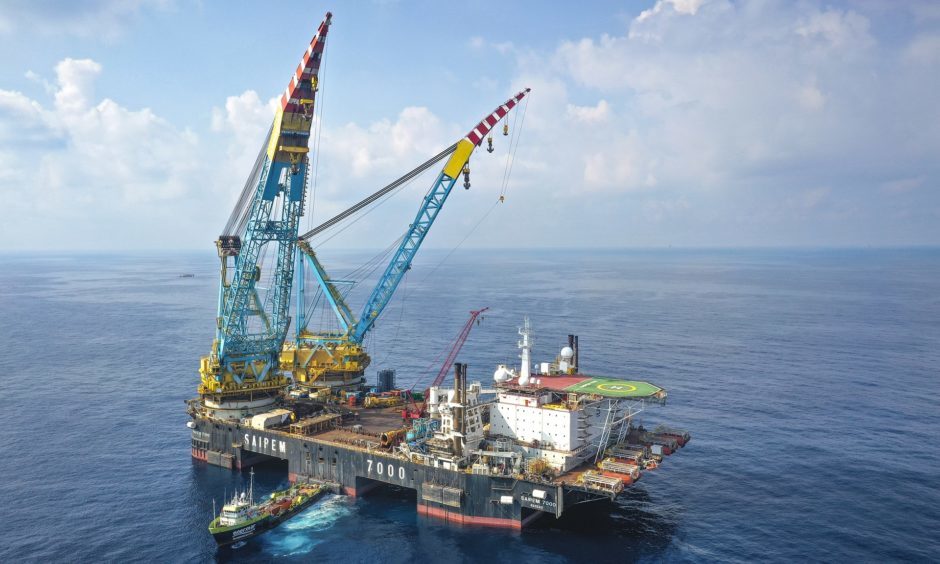
Italian contractor Saipem (BIT: SPM) is assessing a switch to biofuels for its construction vessel, the Saipem 7000.
The Milan-listed firm said testing on the vessel, seen recently on installation duty at the Seagreen windfarm off Scotland’s coast, was carried out in 2022 “with positive results”.
“However more testing is required before utilising biofuel routinely during vessel operations,” the firm added.
The oil and gas industry, including North Sea operators, have been looking at the role of biofuels to cut down on emissions, particularly on production vessels like FPSOs in cases where electrification isn’t viable.
That comes as the industry is required to cut down on emissions under the North Sea Transition Deal – which requires a 50% drop by 2030 vs 2018 levels.
One operator known to be assessing this is EnQuest on the Kraken FPSO, but those pressures are also falling on the supply chain like Saipem.
On Scope 1 direct emissions for offshore, Saipem said it is is working to “identify and introduce, vessel by vessel, the best measures or practices in order to minimise GHG emissions”, leading to the 7000 plan.
In recently-published 2022 accounts for its UK subsidiary, Saipem said it is working to goals of carbon neutrality on Scope 2 by 2025, and reduce Scope 1 and 2 emissions by 50% by 2035.
Typically, vessels like mobile offshore rigs are powered via diesel or gas generators.
Financial loss
Saipem Ltd, registered in Surrey, with two UK sites in London and Aberdeen, reported a gross loss of 73.3m euros during 2022.
The “main contributing factor” for the loss was an incident in April of that year which saw the Saipem 7000 list during a lifting test.
No one was injured, but the malfunction saw a delay in its utilisation at the Seagreen wind project.
The losses are vastly reduced on 2021, when issues linked to the NNG wind farm off Scotland saw the wider group take losses of around 550m euros.
During 2022, NNG accounted for around 25m of Saipem Ltd’s losses.
After tax, the net loss was 86m euros.
